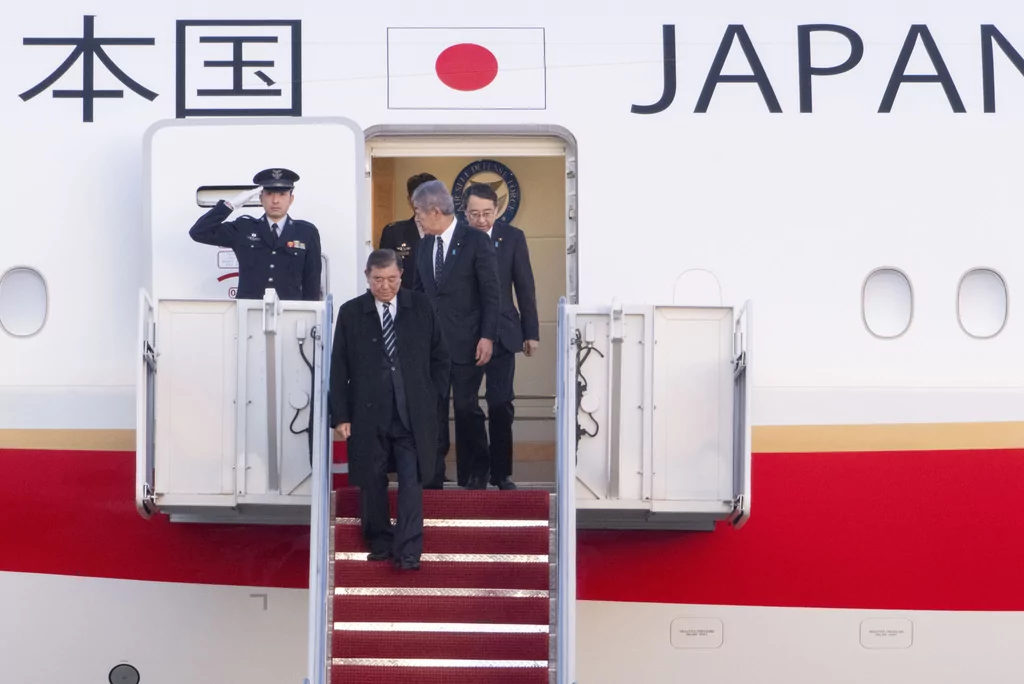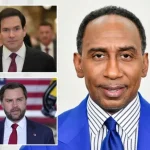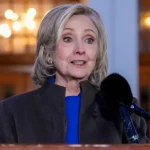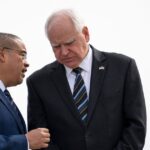
The prime minister of Japan knows he has big shoes to fill as he prepares to meet President Donald Trump, whose well-documented friendship with the late Shinzo Abe defined trans-Pacific collaboration during his first administration.
Japanese Prime Minister Shigeru Ishiba is meeting with Trump at the White House Friday afternoon for a brief introduction with two simple priorities: reaffirming the two countries’ existing alliance and establishing a “personal relationship of trust” between the leaders.
“We have just an agenda of U.S.-Japan relations, so other than that, there’s no specific items to be discussed,” a senior Japanese official told reporters on Thursday. “It’s completely up to the leaders.”
TRUMP EYEING JAPAN’S DEFENSE SPENDING AHEAD OF MEETING WITH PRIME MINISTER

The official, who briefed the press ahead of the meeting on the condition of anonymity, said Ishiba has been consulting with those familiar with Trump for advice and feedback on how to approach the president.
“[Ishiba] met former prime minister Kishida — of course he served as a foreign minister during Shinzo Abe’s administration so he knows President Trump as well, so he asked for some advice,” the official said.
The prime minister also “got some feedback of the meeting between President Trump and the widow of Shinzo Abe since she was [previously] invited to Mar-a-Lago.”
It’s a crucial moment for U.S. allies to solidify friendly relations with the White House as Trump wields the threat of tariffs and sanctions to further his “America-First” agenda.
Abe, who was killed by an assassin in 2022 while giving a speech at a political event in Nara Prefecture, was among Trump’s closest allies during his first term.
Trump eulogized Abe as a “great man and leader,” a “unifier,” and above all a “man who loved and cherished his magnificent country.”
The pair were a prominent example of Trump’s appreciation for golf diplomacy — regularly photographed on the links and even posting smiling selfies together at Mobara Country Club outside Tokyo. Since Abe’s death, their relationship has taken on a life of its own, regularly turned into memes on social media.
Now, Ishiba is hoping to establish a similarly productive rapport with the president.
A variety of issues remain unresolved between the U.S. and Japan — most prominently Nippon Steel’s attempt to acquire the Pittsburgh-based U.S. Steel for $14.1 billion.
Biden blocked the acquisition in the final weeks of his presidency and Trump has reaffirmed the U.S. government’s opposition to the deal, but the two companies are currently filing a lawsuit to force the sale through.
The Trump administration has indicated to the press that they intend to discuss defense spending, cyber-security, and emerging technologies with Ishiba — as well as mutual investment arrangements. The Nippon Steel situation does not seem to be a pressing concern.
The total denuclearization of North Korea also remains a key strategic goal for Japanese defense, and Trump remains the only U.S. president to set foot in the rogue nation after a love-hate relationship with supreme leader Kim Jong Un.
While there is no intention to pressure Trump into playing point-man for North Korea relations, Japanese officials hope that his return will aid their efforts to establish a direct line of communication with the country — which regularly test-launches intercontinental ballistic missiles around the Japanese islands.
CLICK HERE TO READ MORE FROM THE WASHINGTON EXAMINER
The only prominent leader in Japan that has seen continuity from Trump’s first administration into his second is Emperor Naruhito, who hosted the president in 2019.
Trump was the first world leader to meet with him after his ascension to the throne and described the occasion as a “great honor.”
However, the Imperial Family is constitutionally defined as a mere “symbol” of the Japanese state and is legally forbidden from taking an active role in national politics.




